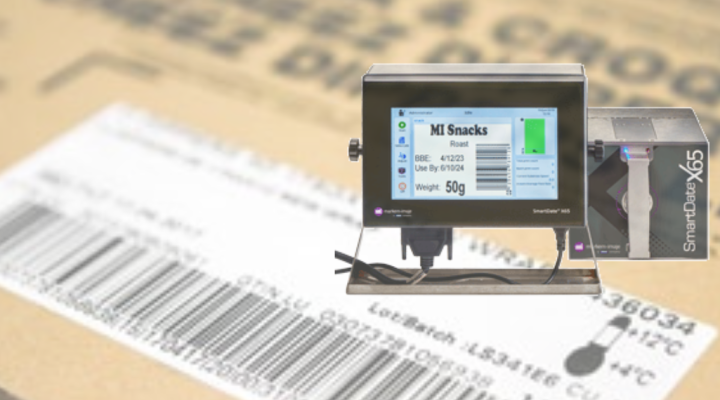
In the dynamic landscape of the food industry, efficiency and traceability are paramount. With stringent regulations and consumer demand for transparency, accurate labelling and tracking of products become essential. Barcode printing machines emerge as indispensable tools in this pursuit, enabling food manufacturers to streamline operations, ensure compliance, and enhance consumer trust.
Barcode printing machines serve as the backbone of labelling processes in the food industry. They facilitate the creation of barcode labels that encode vital information such as product identification, batch numbers, expiry dates, and more.
Efficiency: Barcode printing machines streamline labelling processes, reducing the time and labour required for manual labelling. This efficiency translates to increased productivity and lower operational costs for food manufacturers.
Accuracy: By automating the printing of barcode labels, these machines minimise the risk of human error in data entry and labelling. Accurate barcode labelling ensures that products are correctly identified, tracked, and accounted for throughout the supply chain.
Regulatory Compliance: Barcode printing machines help food manufacturers comply with regulatory requirements regarding product labelling, traceability, and recall procedures. Properly labelled products enable regulatory agencies to track and trace food items swiftly in the event of a safety or quality issue.
Inventory Management: Barcode labels enable efficient inventory management by providing real-time visibility into stock levels, expiration dates, and batch numbers. This visibility allows manufacturers to optimise inventory levels, minimise waste, and ensure timely replenishment of stock.
Supply Chain Visibility: Barcode labels facilitate seamless integration with supply chain management systems, providing stakeholders with visibility into product movement from production to distribution. Enhanced visibility enables better decision-making, reduces delays, and improves overall supply chain efficiency.
High-Quality Printing: Barcode printing machines offer high-resolution printing capabilities, ensuring clear and accurate barcode reproduction. This feature is essential for ensuring barcode readability throughout the product lifecycle.
Versatility: These machines support various label sizes, formats, and materials, allowing food manufacturers to customise labels according to product specifications and branding requirements.
Integration Capabilities: Barcode printing machines can integrate with enterprise resource planning (ERP) systems, warehouse management systems (WMS), and other software platforms, enabling seamless data exchange and workflow automation.
Durability: Many barcode printing machines utilise thermal transfer printing technology, which produces durable labels resistant to moisture, heat, and abrasion. This durability ensures that barcode labels remain legible and intact, even in challenging environments.
Ease of Use: Modern barcode printing machines feature user-friendly interfaces and intuitive software, making them easy to set up, operate, and maintain. This simplicity minimises training requirements and enhances overall user experience.
Thermal Transfer Printers: Widely favoured for their durability and high-quality printing, thermal transfer printers utilise a heated print head to transfer ink from a ribbon onto label material. Ideal for applications requiring long-lasting labels, they are well-suited for food packaging that demands resilience against environmental factors.
Direct Thermal Printers: Employing heat to create images directly on specially coated paper, direct thermal printers are commonly utilised for short-term labelling needs such as shipping labels. While suitable for temporary product identification, they may not offer the longevity required for extended shelf-life products.
Inkjet Printers: Offering versatility in printing colour labels and variable data, inkjet printers use droplets of ink to create images on various surfaces, including labels. While not as durable as thermal printing methods, they provide flexibility for smaller food operations requiring customisation.
Laser Printers: Although less prevalent for barcode printing in the food industry, laser printers can produce high-resolution labels suitable for smaller-scale operations. While cost-effective for certain applications, they may not match the durability of thermal printing for high-volume production.
Barcode printing machines play a vital role in enhancing efficiency and traceability within the food industry. By leveraging the right printing technology and adhering to best practices, food manufacturers can ensure compliance with regulations, optimise inventory management, and build consumer trust through transparent labelling practices.
If you're looking to purchase barcode printing machines and need help with choosing the correct technology for your needs, then Contact us today and we’d be more than happy to discuss your options.